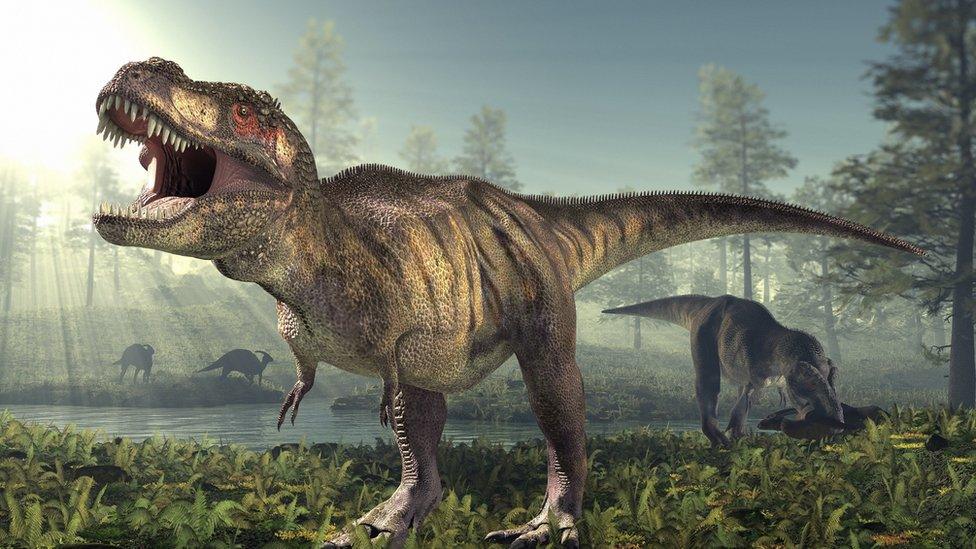T-Rex and most other dinosaurs were warm blooded scientists find
- Published
- comments

Scientists think they've found the answer to one of the oldest dinosaur questions!
Were dinosaurs were warm or cold-blooded?
It's one of the oldest questions that dino experts have been trying to work out, but scientists think they have finally found their answer!
Based on clues from their bones, palaeontologists now think that most dinosaurs were warm-blooded, like humans.
Knowing whether the creatures had warm or cold blood could help scientists work out how active they were and what their everyday lives were like.
What kind of dinosaur would YOU have been? Take our quiz below and let us know in the comments what you got!
What did scientists find?
Some species of dinosaur, like the triceratops, are believed to have been cold-blooded
In a new study, scientists looked at leg bones from 55 different groups of animals, including dinosaurs, and were able to work out how much oxygen the dinosaurs breathed and therefore whether they were likely to have had warm or cold blood.
Experts noticed differences between the two big groups of dinosaurs.
Species such as the Stegosaurus and Triceratops were cold-blooded - whereas the T-Rex, Velociraptor and Brachiosaurus were warm or even hot-blooded!
Not all dinosaurs were big - some species of Microraptor were the size of a pigeon!
Experts say that the new findings can help us with our understanding of what the dinosaurs' lives were likely to have been like.
Dr Jasmina Wiemann, who led the study said that cold-blooded dinosaurs "might have had to migrate to warmer climates during the cold season", and that climate may have been an important factor as to where some of these dinosaurs could live.
On the other hand, she added that the hot-blooded dinosaurs would have been more active and would have needed to eat a lot.
If you can't see the quiz at this top of this page, click here.
- Published25 January 2021
- Published28 April 2022
- Published26 May 2022
